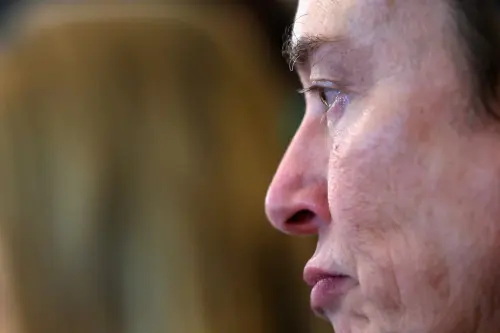Darrell West joined The Kojo Nnamdi Show with guest host, Rebecca Roberts, and David Kibbe, to discuss how new technologies can bring in a new era of “participatory medicine.”
Rebecca Roberts, host: But first, our series on health care continues with a conservation about what the digital frontier means for your relationship with your doctor. The political future of health care is up in the air, but some say the technological future is already here. Electronic health records have been advertised as a vehicle to reduce errors, slash costs and improve outcomes. And billions of dollars have already been earmarked to bring the American medical system into the digital age. But how do we make sure that we aren’t replicated the flaws in our current system in digital format. And what good is opening a faucet of data if patients don’t know how to use it; make decisions about their own care. Joining me to discuss digital medical records is Darrell West, he is the author of Digital Medicine: Health Care in the Internet Era. He is also the vice president and director of Governance Studies at Brookings. Welcome to the program.
Darrell West: Thank you Rebecca, nice to be here.
Rebecca: Also on the line is David Kibbe, he’s a family physician and a senior advisor to the American Academy of Family Physicians. He also helped develop continuity standards for online health exchanges. Welcome to the program.
David Kibbe: Hi Rebecca.
Rebecca: Darrell West, let’s start with you. We’re having this conservation at this time in part because the Obama administration has earmarked some of this stimulus package, I think $37 billion, more or less a number for electronic health records as part of health care reform. Saying that it will save money; saying that it will improve outcomes. Why is this a focus? What is it about electronic data that leads to better health?
Darrell: Because we’ve seen in the private sector that technology is a great way to improve productivity and give people more control over the particular thing they’re interested in. We’ve certainly seen it in the book ordering area with Amazon.com and what we need to do with health care is to really use technology to achieve some of the same productivities there. There’s a lot of redundancy. Every time you go to a doctor, you have to fill out those very same questions. If you had an electronic medical record, the doctor would know what your medical history was. There are a lot of errors that take place, anyone that has tried to read a doctor’s handwriting knows exactly how problematic that can be. There are errors in terms with prescriptions, dosage levels and time periods for which you are to take various medications. So technology really offers a potential to improve outcomes and save money in the process.
The Brookings Institution is committed to quality, independence, and impact.
We are supported by a diverse array of funders. In line with our values and policies, each Brookings publication represents the sole views of its author(s).



Commentary
Digital Health and Participatory Medicine
August 12, 2009